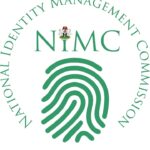Picture: Muhammad Nami,
Executive Chairman of the Federal Inland Revenue Service
…Nigeria To Continue To Participate In Rules Development
A delegation from the Organisation for Economic Co-operation and Development (OECD) met with Nigerian representatives on 4th and 5th April 2023, at a workshop it jointly organised with the Federal Inland Revenue Service (FIRS), to discuss the maximisation of the benefits of the Two-Pillar Solution for Nigeria.
This is contained in a Statement released Thursday by Johannes Oluwatobi Wojuola, the Special Assistant to the Executive Chairman, FIRS (Media and Communication).
According to the statement, the Workshop Outcome Statement was signed by the Executive Chairman of the Federal Inland Revenue Service (FIRS), Muhammad Nami and the OECD Representative, Mr. Ben Dickinson.
The Two-Pillar Solution, a proposal by the OECD Inclusive Framework, is a set of proposed rules, endorsed by 138 countries across the world as a uniform solution to the tax challenges of the digitalised economy, as well as Base Erosion and Profit Shifting.
Nigeria, one of the four members of the Inclusive Framework that did not endorse the set of rules, met with the OECD delegation last week to familiarise relevant government officials with the rules, Nigeria’s position, as well as the potential benefits of the Two-Pillar Solution to the country and the world in general.
The workshop was attended by key stakeholders, led by the Executive Chairman of the FIRS, Mr Muhammad Nami, who was represented by the Coordinating Director, Executive Chairman’s Group, Mr. Muhammad Lawal Abubakar. Also in attendance were the representatives of the Office of the Vice President, the Federal Ministry of Finance, Budget and National Planning, the Federal Ministry of Justice, Federal Ministry of Industry, Trade and Investment, Nigerian Investment Promotion Commission (NIPC), Nigeria Export Processing Zone Authority (NEPZA), Oil and Gas Free Zone Authority (OGFZA), Nigeria Export Promotion Council (NEPC), Joint Tax Board (JTB), and some States’ tax authorities.
After a critical review of the rules and Nigeria’s participation in their development, stakeholders at the meeting resolved that “there is the need for Nigeria’s continued participation in the rule development, as a member of the Inclusive Framework, to ensure that the interest of the country and Africa is factored into the design and development of the rules.”
The Outcome Statement noted that whether or not Nigeria endorsed the statement of October 2021, and the detailed rules to be released later, to address challenges arising from the digitalisation of the economy, the country’s tax base and fiscal policy options will be impacted by the implementation of the Two-Pillar solution, especially the Pillar 2 Global Minimum Tax Rules of 15% effective tax rate (the GloBE rules).
The meeting consequently observed that there was the need for Nigeria to immediately implement fiscal policy measures to address these potential impacts.
“In light of this, there is a need to commence immediate implementation of fiscal policy measures around the Global Minimum Tax Rules, in view of the fact that other jurisdictions around the world have commenced implementation of measures that will enable them reap top-up taxes allowed under the rules, which will be to the detriment of Nigeria from 2024, if no step is taken.
“There is also an urgent need to review and streamline Nigeria’s tax incentives, as the rules will have the impact of allowing other jurisdictions to mop up taxes not collected in Nigeria due to tax incentives,” the Statement read.
The Stakeholders also observed that Nigeria could implement and reap the benefits of Pillar 2, even where it does not wish to implement Pillar 1, noting that “Effective implementation of Pillar 2 rules holds significant potential for increased tax revenue to fund government programme, boost the economy and keep Nigeria as an attractive investment location.”
As part of its recommendations, the OECD-Nigeria Meeting urged stakeholders within the country to commence internal engagements and “draw up a national strategy for immediate streamlining of its tax incentives, to avoid ceding its tax base to other jurisdictions, owing to the implementation of Pillar 2 rules.”
The Workshop Statement enjoined Nigeria to take immediate steps to respond to Pillar 2 through implementation of tax policy options, which may include “changing its income tax rule to bring up its effective tax rate to a minimum of 15% or introducing a Qualified Domestic Minimum Top-up Tax (QDMTT)”.
The meeting emphasised on the need for Nigeria to continue to participate in the rule development “as a matter of importance to protect national interest.”
Nigeria is a member of the Inclusive Framework, and has actively participated in the rule development process despite not endorsing the Inclusive Framework October 2021 Statement on the grounds that it was in Nigeria’s best interest not to do so, to ensure that the country does not lose out on potential revenue from the digital economy.
The Executive Chairman of the FIRS had in a statement in May 2022 noted that the country had concerns over the impact the rules could have on Nigeria’s tax system and revenue generation.
“There are serious concerns on how the rules (particularly on Pillar 1) would compound the issues in our tax system. For instance, to be able to tax any digital sale or any multinational enterprise (MNEs), that company or enterprise must have an annual global turnover of €20 billion and a global profitability of 10%. That is a concern. This is because most MNEs that operate in our country do not meet such criteria and we would not be able to tax them,” Mr Nami stated then.
“Secondly, the €20 billion global annual turnover in question is not just for one accounting year, but it is that the enterprise must make €20 billion revenue and 10% profitability in average for four consecutive years, otherwise that enterprise will never pay tax in our country, but in the country where the enterprise comes from, or its country of residence,” the statement read.
Thirdly he noted that for Nigeria to subject a Multinational Enterprise to tax under the rule, the entity must have generated at least €1 million turnover from Nigeria within a year.
Mr. Muhammad Nami stated that this is an unfair position especially to domestic companies which, with a minimum of above N25 million (that is about €57,000) turnover, are subject to companies income tax in Nigeria. He added that this rule will take-off so many Multinational Enterprises from the scope of those that are currently paying taxes to Nigeria. In other words, even the MNEs that are currently paying taxes in Nigeria would cease to pay taxes to us because of this rule.
Fourthly, on the issue of dispute resolutions under the Two-Pillar Solution, the FIRS Executive Chairman explained that the rules were such that in the event of a dispute between Nigeria and a Multinational Enterprise, Nigeria would be subject to an international arbitration panel as against Nigeria’s own justice system.
“It would be subject to international arbitration and not Nigeria’s judicial system and laws—even where the income is directly related to a Nigerian member of an MNE group, which is ordinarily subject to tax in Nigeria on its worldwide income and subject to the laws of Nigeria. We are concerned about getting a fair deal from such process. More so, such a dispute resolution process with a Multinational Enterprise, in an international arbitration panel outside the country, would lead to heavy expenses on legal services, traveling and other incidental costs.
“Nigeria would spend more; even beyond the tax yield from such cases,” the statement had read.











